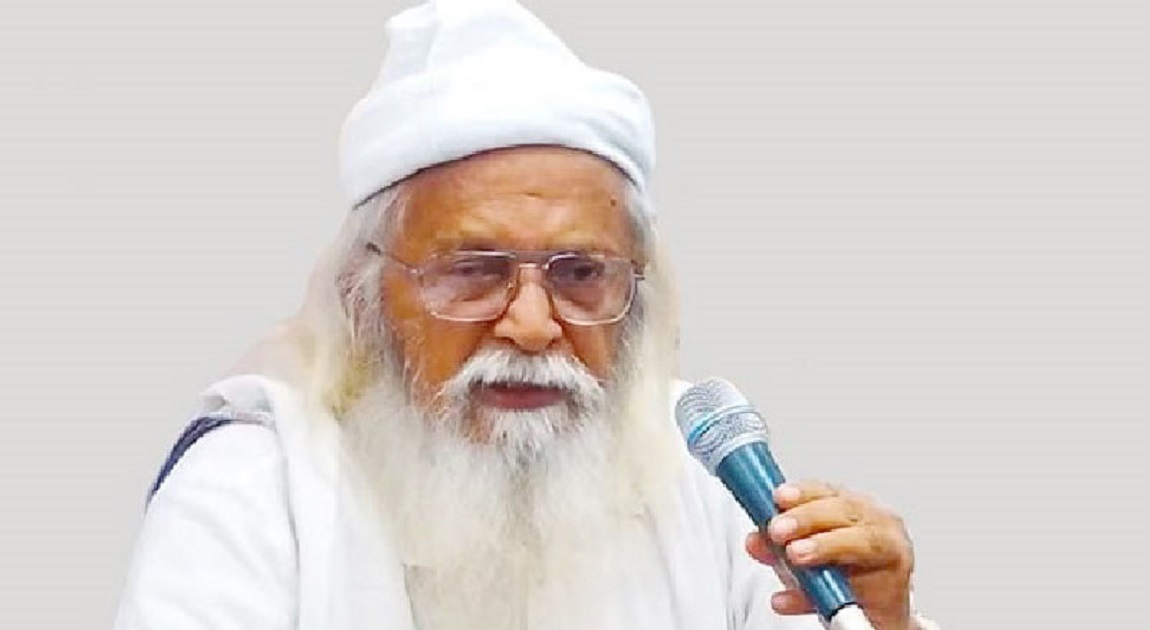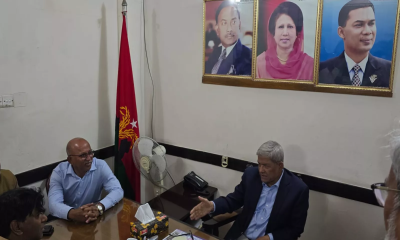Poet and political thinker Farhad Mazhar has said that Chief Adviser Dr. Muhammad Yunus lost his legitimacy by taking the oath of office, as it amounted to a denial of the people’s uprising.
Speaking as the chief guest at a discussion titled “Fascist State System and Elections” organized by the Center for Democracy and Peace Studies at the National Press Club on Tuesday, Farhad Mazhar strongly criticized the current interim government.
“You (Dr. Yunus) denied the people’s uprising by taking the oath. Politics is not Grameen Bank management; running a state is something different. You must answer to the people,” he said.
Farhad Mazhar also challenged several of the chief adviser’s decisions and appointments, including the formation of a National Consensus Commission and the entry of various foreign initiatives. He accused Dr. Yunus of trying to preserve Sheikh Hasina’s constitution, thereby undermining the people’s movement.
“Why do you want elections?” he asked. “You came through a people’s uprising, but the people are the true leaders—not any individual.”
He further criticized Yunus for what he called “wrong decisions,” such as labeling a group of youths as “masterminds” and failing to hold adequate discussions with the public on crucial national issues.
Farhad Mazhar also raised concerns about the prime minister’s resignation letter, saying, “We were told she resigned, but no one has seen the letter, not even the president. This is unacceptable.”
He argued that a new Constituent Assembly must be formed through elections, and only its decisions would carry legal authority. Mazhar compared the situation to past military takeovers, saying Yunus had not issued any proclamations to legitimize governance after the uprising.
Accusing the chief adviser of bringing in individuals aligned with U.S. and corporate interests, Farhad Mazhar said, “You are securing the country with people identified by the U.S. Embassy as ‘their men.’ Whose interests are you protecting?”
He also warned of looming national security risks, including the Rohingya crisis, Myanmar’s geopolitics, and armed activities in the Chittagong Hill Tracts, cautioning that even territorial divisions could occur.
Farhad Mazhar condemned reports of army involvement in civilian killings in Gopalganj, blaming the chief adviser for pushing the military into a vulnerable position. He also criticized the move to hand over sensitive infrastructure like Chittagong Port to foreign companies without consulting the armed forces.
Expressing deep concern, Farhad Mazhar said, “We had hoped Dr. Yunus would understand the spirit of the people’s uprising, but he has not. Instead, he is steering the country into grave danger.”
Others present at the discussion included former secretary Abdullah Al Mamun, Jamaat-e-Islami leader Dr. Shafiqul Islam Masud, lawyer Abu Hena Razzaki, and retired Lt. Col. Hasinur Rahman.














-20260226080139.webp)






-20260225072312.webp)










-20260219054530.webp)
-20260224075258.webp)





-20260221022827.webp)